Home-based treatments for herpes can help ease symptoms. Examples include applying a cold compress and making sure you get enough zinc and vitamin C in your diet. Prescription antivirals can also shorten the length of outbreaks.
The herpes simplex virus (HSV) causes infections that lead to oral or genital herpes.
- Herpes simplex virus type 1 (HSV-1) most often causes oral herpes. It spreads via contact with sores or saliva. Oral sex can sometimes transmit oral herpes to the genital area.
- Herpes simplex virus type 2 (HSV-2) most commonly causes genital herpes. It transmits through sexual contact, even when visible sores are absent.
Both HSV types are widespread. The World Health Organization (WHO) estimates that billions of people worldwide have either HSV-1 (about 3.7 billion) or HSV-2 (about 400 million).
When people have active herpes lesions, symptoms can be painful and uncomfortable. The herpes virus stays in the body for life, typically lying dormant most of the time. There’s no cure yet, but home remedies may help relieve symptoms during HSV-1 or HSV-2 flare-ups.
Doctors may prescribe oral antiviral drugs to reduce the frequency and shorten the duration of outbreaks. Mild flares might not require prescription medication.
If you’re having your first episode, oral antivirals can markedly reduce pain and the length of the flare. Some people also use home remedies alongside prescribed treatments.
Keep reading to explore home approaches for managing herpes symptoms and medical treatments that can reduce the length of a flare.
Can natural home remedies treat herpes on their own?
Home remedies might help diminish inflammation, irritation, and other symptoms during a herpes flare.
However, these approaches don’t replace a medical treatment plan. Many are supported only by in vitro research—studies done in test tubes rather than in people. The human body is far more complex, and results seen in lab settings may not translate directly to real-world effectiveness.
Always consult a doctor or other healthcare provider before trying alternative treatments. They can advise about appropriate dosages, potential side effects, and interactions.

Dietary changes for herpes

Some clinical evidence indicates that adjusting your diet may help cut down the frequency of outbreaks and speed recovery. Certain foods and avoiding others might strengthen your immune response, helping your body manage the herpes virus more effectively.
Omega-3 fatty acids
Omega-3 long-chain fatty acids may help support immune function.
Foods high in these fats include:
- salmon
- mackerel
- flaxseed
- chia seeds
Vitamin C
Research suggests vitamin C may help reduce recurrence of some HSV types, particularly when combined with antiviral drugs. It may also shorten time to remission and lower recurrence risk.
Foods rich in vitamin C include colorful fruits and vegetables such as:
- bell peppers
- oranges
- strawberries
- mango
- papaya
Zinc
Two small studies referenced in a review suggest zinc might lower the number of herpes outbreaks and increase the time between episodes. Foods that boost zinc intake include:
- eggs
- chickpeas
- oats
- beef
Zinc supplements may also assist during an outbreak.
Vitamin B12
A 2021 study indicates vitamin B12 deficiency could raise the likelihood of herpes reactivation in some people.
B12 is one of the B-complex vitamins that helps support immune health and healthy cell growth—both important for healing during a flare.
Sources of B12 include:
- beef
- tuna
- fortified cereals
- eggs
- dairy products
Avoid acidic foods
Acidic foods can irritate lesions before they heal. Fruit juices, beer, sodas, and many processed foods tend to be more acidic. Consider cutting back on these and choosing water or sparkling seltzer instead.
Avoid L-arginine
Some research suggests that large intakes of arginine-rich foods may provoke cold sores. High amounts of these foods could trigger viral activity, including herpes.
Foods high in L-arginine include:
- almonds
- peanuts
- spinach
- chocolate
Limit processed or preservative-heavy foods
A review suggests processed foods with artificial preservatives may contribute to oxidative stress. Reducing oxidative stress may promote healing during active herpes infections.
Learn more about the distinction between processed and ultra-processed foods.
Supplements for herpes

Dietary supplements might help bolster your immune system and aid in suppressing outbreaks.
Keep in mind the FDA does not regulate supplements to the same standard as pharmaceuticals. Always consult a healthcare provider before starting any supplement, as some can interact with over-the-counter or prescription medicines.
Getting nutrients from whole foods often differs from taking isolated supplements. The National Center for Complementary and Integrative Health (NCCIH) recommends meeting nutritional needs primarily through food when possible.
Lysine
Lysine is an amino acid that supports digestion and cell repair. Research on lysine’s role in preventing herpes recurrences is ongoing.
High doses, often required for antiviral effects, can cause side effects, so consult a healthcare professional before taking lysine supplements.
Lysine-rich foods include:
- avocados
- quinoa
- beans
- nuts and seeds
Probiotics
Several reviews indicate certain probiotic strains may help stimulate immune responses against herpes infections. Probiotic supplements containing Lactobacillus rhamnosus strains have shown potential in improving immune function and may support immunity.
Learn more about probiotics.
Topical herbs, oils, and other applications

Although some evidence points to benefits, essential oils are not regulated by the FDA for purity or potency. Discuss essential oil use with a healthcare professional and research the quality of brands. Always perform a patch test before applying a new oil.
Certain topical agents, when used properly, may aid cold sore healing and ease discomfort. Still, more human research is needed.
Lemon balm
Lemon balm, applied as a diluted cream, is among the topical agents that lab studies suggest might combat herpes and reduce symptoms. However, these findings are not from human trials, so its effectiveness in people remains uncertain.
Aloe vera
Aloe vera supports wound healing. A 2021 review, mostly based on animal and in vitro studies, indicates aloe vera may have antiviral effects that soothe and help heal herpes lesions. More human studies are needed.
Tea tree oil
Older lab work suggests tea tree oil has antiviral activity that could help prevent recurrent herpes. Experts emphasize more research is necessary to understand its antiviral potential. Tea tree oil should always be diluted in a carrier oil before skin application for cold sores or genital herpes.
Witch hazel
Witch hazel shows antiviral effects. Some users tolerate undiluted witch hazel well, while others experience stinging. If your skin is sensitive, dilute witch hazel with water or a carrier oil.
Manuka honey
Research from 2021 indicates applying manuka honey topically may be as effective, or possibly more so, than topical acyclovir for treating HSV-1 and HSV-2. Manuka honey can be used directly without dilution.
Chamomile
Chamomile is widely used for its soothing properties. Some older in vitro research suggests chamomile essential oil may have calming and antiviral effects against HSV-2. If used as an essential oil, always dilute it with a carrier oil before skin application.
Ginger essential oil
In vitro studies suggest ginger essential oil may be able to inactivate herpes virus on contact. If used topically, it must be diluted with a carrier oil.
Thyme essential oil
Thyme essential oil contains compounds that can target the herpes virus. Dilute it in a carrier oil before applying to skin.
Lavender oil
Lavender oil may also protect against herpes. As with other essential oils, dilute lavender oil with a carrier before skin use.
Eucalyptus oil
Beyond its antiviral properties, eucalyptus oil can soothe and support healing. Always dilute in a carrier oil.
Mexican oregano essential oil
Mexican oregano oil contains carvacrol, an antiviral compound that research suggests can inhibit multiple viruses, including HSV-2. Dilute it in a carrier oil before topical use.
Licorice root
A 2021 review indicates licorice’s active components have antiviral and anti-inflammatory effects, making licorice extract a promising option for herpes treatment. Licorice extract can be applied topically without dilution.
Echinacea
Echinacea extract may act as an antiviral against both HSV strains, according to a 2019 review. Its anti-inflammatory action may also ease flare-ups. Echinacea extract can be applied directly to the skin.
Neem essential oil
Older research suggests neem essential oil might be effective against HSV. Pure neem can be very strong and may burn the skin, so it must be diluted with a carrier oil.
What to consider when picking a home remedy for herpes
Before trying any remedies, keep these points in mind.
New infection
A healthcare professional should guide your herpes management. Talk to them before attempting home remedies if any of the following apply:
- you were recently exposed and don’t know if you contracted herpes
- you may have been exposed and are seeing sores or genital lesions but haven’t had a herpes test
- you got a positive result from an at-home herpes test but haven’t discussed it with a clinician
- you are immunocompromised
Pregnancy
Babies can acquire herpes during childbirth. Neonatal herpes is rare in the United States but can cause serious complications, including developmental problems or nervous system damage.
If you have herpes symptoms or suspect an infection during pregnancy, contact your OB-GYN promptly.
Recurring outbreaks
An initial herpes infection may cause sores that last several weeks. Subsequent outbreaks usually occur less often and are shorter.
Frequent recurrences could signal an underlying immune concern. Consult a doctor if you have recurrent outbreaks.
General do’s and don’ts
Below are general recommendations for managing herpes outbreaks.
If you have a cold sore:
- Do replace your toothbrush after an outbreak.
- Do prioritize rest, and consider vitamin C and zinc when stress is high.
- Do use a hypoallergenic, clear lip balm with SPF to shield lips from sun, wind, and cold.
- Avoid sharing cups or utensils during an outbreak.
- Avoid picking at, popping, or otherwise disturbing the cold sore as it heals.
If you have genital herpes:
- Do wear cotton underwear and loose-fitting clothes.
- Do take long, warm showers and keep the area clean and dry otherwise.
- Avoid soaking in hot tubs or baths.
- Avoid sexual activity during an outbreak. The virus can spread even with condom use.
Frequently asked questions about herpes
What triggers herpes outbreaks?
Triggers include stress, other illnesses, menstrual cycles, UV exposure, and certain foods.
Can you cure herpes permanently on your own?
There is no cure for herpes at this time. However, preventive steps and treatments can reduce the frequency of cold sores.
How long do herpes sores last?
Herpes episodes usually last about 7–10 days. First-time outbreaks can be longer, often around two weeks.
What happens if herpes isn’t treated?
Many people with herpes never develop symptoms or require treatment. Untreated herpes can cause painful lesions and, if sexual activity occurs during an outbreak, can be transmitted to others. HSV can also spread even without visible symptoms.
It’s particularly important that pregnant people and those with weakened immune systems receive medical oversight when managing herpes.
The bottom line
Home remedies can be useful as complementary measures, but they do not replace medical care.
If your current plan isn’t effective, see a healthcare professional. They can evaluate your symptoms and recommend appropriate treatments, including prescription medications, and suggest complementary options.
If symptoms worsen after using a home remedy, stop using it and consult a healthcare provider.
Read this article in Spanish.

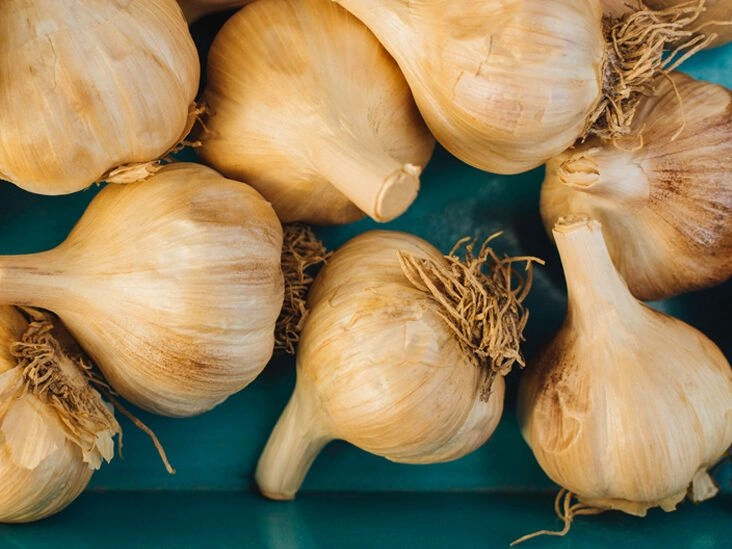

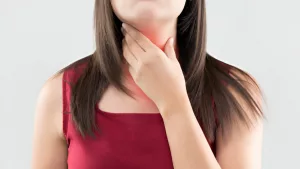



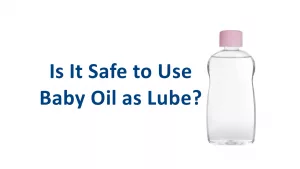

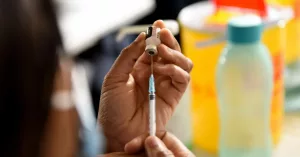
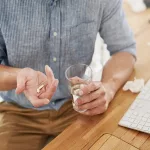

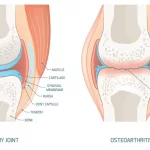
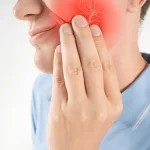



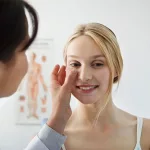



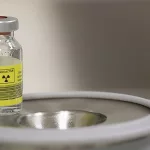

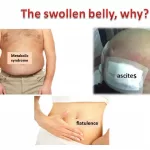
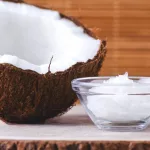
Leave a Reply
You must be logged in to post a comment.